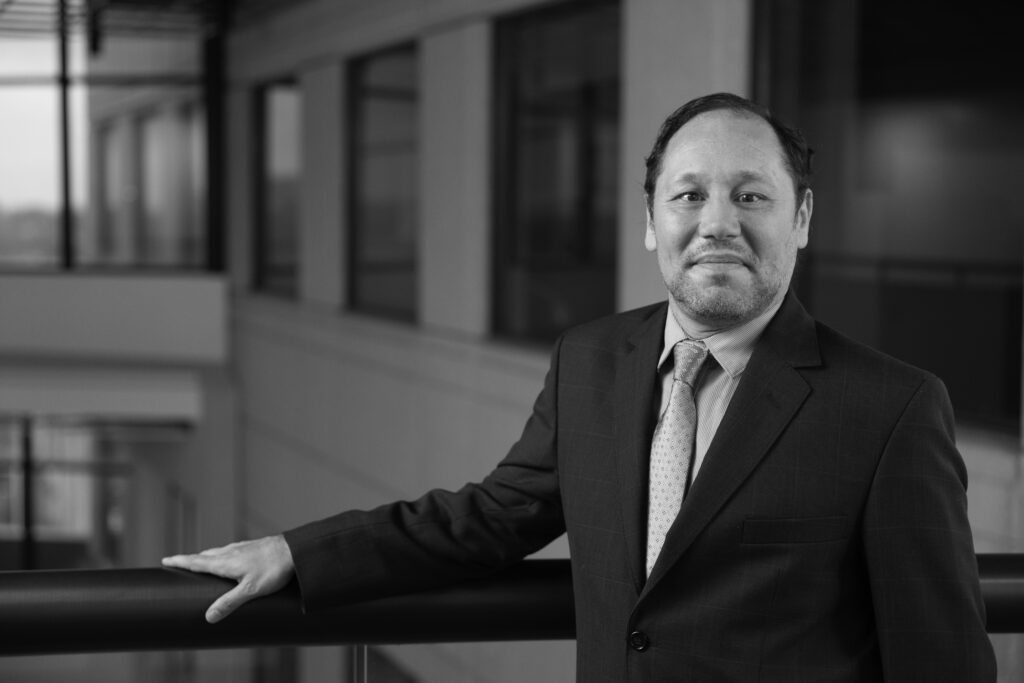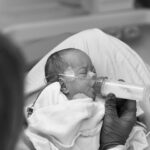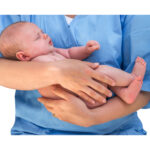5 Questions with Adolfo Etchegaray, MD
5 Questions with Adolfo Etchegaray, MD https://pediatricsnationwide.org/wp-content/uploads/2023/05/103122BT152-1024x683.jpg 1024 683 Emily Siebenmorgen Emily Siebenmorgen https://pediatricsnationwide.org/wp-content/uploads/2023/05/Emily.Siebenmorgen-scaled-e1684876333147.jpg- May 24, 2023
- Emily Siebenmorgen

Meet Adolfo Etchegaray, MD, chief of fetal medicine at Nationwide Children’s Hospital. Learn more about Dr. Etchegaray’s expertise and path to leadership at The Fetal Center, and what lies ahead for this global destination program.
Q: What drew you to a career in fetal medicine?
A: Before going into medicine, my plan was to become a molecular biologist because I loved genetics and was really intrigued with the inner workings of the cell. But, coming from a family of doctors, the call ultimately swayed me towards going into medicine. I’m still fascinated with understanding how the body works biologically, but medicine adds that extra layer of humanity that gets you up every morning. It is so rewarding to be able to translate this understanding into care that changes peoples’ lives.
Q: What’s been the most rewarding part of your career in this specialty so far?
A: Without a doubt, the most rewarding thing is seeing those babies you met as tiny fetuses with severe conditions living full lives. The priceless part of my job is getting updates and short videos from parents and watching these kids grow and thrive over the years. It’s so touching that some of these kids know me by name, as if I were part of their extended family. It’s amazing being able to change the trajectory of their lives from the very beginning.
Q: What was your training and career journey before coming to Nationwide Children’s?
A: I first heard about fetal medicine during my residency in Buenos Aires, and from that moment on, I immediately knew what I wanted to be. I was lucky enough to receive my subspeciality training from one of the fathers of fetal medicine, Dr. Kypros Nicolaides, who single-handedly changed the way we practice obstetrics all over the world. As soon as I learned about his work, I applied to be a fellow at King’s College Hospital, London and train with him during my last year of residency.
This was a great place to learn because we would get patients from all over the world. In a normal hospital, you might be able to see some of these uncommon fetal anomaly cases once or twice every five years. At King’s College Hospital, we were exposed to the whole range of fetal pathology every week, which was a phenomenal opportunity to gain experience in the field of fetal pathology. I spent the last part of my fellowship in Spain, where I had advanced training in invasive fetal procedures, including diagnostic and therapeutic interventions.
After I finished my fellowship, I was promptly recruited by a large university hospital back in Argentina to develop a new fetal medicine unit and a fetal surgery program. The first thing to do was to start to slowly change the institutional culture, so that the team understood that we could provide ever earlier diagnoses and treat fetuses with life-threatening conditions. In 2014, I joined forces with the chief of pediatric surgery to develop what would become one of the busiest fetal surgery programs of the region. It was incredibly fulfilling to both start a program and see it grow to that scale.
Q: What drew you to Nationwide Children’s?
A: There were two main things that drew me to Nationwide Children’s. On a professional level, I knew it would be an exciting challenge to move from a general hospital to a free-standing children’s hospital and be part of the transition to this new mantra of “thinking fetal.” The U.S. has a long history of innovation in the fetal space, and the sheer scale of talent and resources available in a place like Nationwide Children’s for the development of new prenatal therapies was in a different ballpark compared to what I was used to in my home country.
On a more personal level, having the opportunity to live on different continents has been an enriching experience for me and my family. My kids were exposed to diverse cultures, and we wanted to rekindle that stimulus of getting outside our comfort zone again. Of course, moving countries is not without some stress! But it’s really rewarding and rejuvenating to be able to make such a big switch and start again fresh every once in a while. At the end of the day, I’m really fortunate that my wife has always been so supportive in all the new adventures I have proposed to her.
Q: You’ve done pretty extensive research into congenital abnormalities, fetal therapy and prenatal screening. Will you be continuing this research at Nationwide Children’s?
A: Absolutely. We are already collaborating with several pediatric research teams here and setting up new lines of research. Nationwide Children’s has done amazing work in pediatrics during the last decades. But, even when we get an early prenatal diagnosis, our therapies can sometimes be too late by the time the baby is born. It’s becoming clear that we’ll be able to start many new treatments well before birth in the near future, changing the natural history of many life-limiting conditions.
And, this goes even beyond the scalpel. We’re currently living in a revolution of genetic diagnosis and molecular therapies where we can pinpoint minuscule changes very early in pregnancy. It will take some time to develop and validate these new therapies in a way where we can guarantee their effectiveness and safety for both mom and baby. But, it is exciting to see there are so many opportunities and innovations coming down the pike.
I think what sets Nationwide Children’s Fetal Center apart is being part of a children’s hospital that has been doing amazing research for decades. This gives us the unique opportunity to provide continuity of care from the womb well into adolescence. We want to build on that as we contribute to the fetal medicine space.
About the author
Emily Siebenmorgen is a Science Communication Specialist at Nationwide Children's Hospital with a passion for making research findings accessible. From her time writing at Battelle and AWRI's Center for Injury Research and Policy, she has experience distilling complex topics into simple takeaways for both professional and consumer audiences. Emily earned her BS in Psychology and BA in Strategic Communication from The Ohio State University.
- Emily Siebenmorgenhttps://pediatricsnationwide.org/author/emily-siebenmorgen/
- Emily Siebenmorgenhttps://pediatricsnationwide.org/author/emily-siebenmorgen/
- Emily Siebenmorgenhttps://pediatricsnationwide.org/author/emily-siebenmorgen/September 29, 2022
- Emily Siebenmorgenhttps://pediatricsnationwide.org/author/emily-siebenmorgen/October 17, 2022
- Posted In:
- Uncategorized







